BRICS Summit In Brazil Declares Bloc Will Further Agenda 2030, Support The UN's 17 SDGs, Promote Carbon Taxes, Vaccine Creation And More
The new world order is being restructured right before our eyes and the Great Reset is going according to plan. Globalization 2.0.
The growing BRICS bloc, an alternative to American hegemony, held its 17th summit in Rio de Janeiro, Brazil, beginning on Sunday and concluded on Monday, July 7th, with this year’s theme being “Strengthening Global South Cooperation for More Inclusive and Sustainable Governance.” However, beneath the surface and headlines, BRICS is far from challenging so-called Western hegemonic institutions, but rather an extension and reformation of the existing system. BRICS members made it clear over the weekend that it fully intends to continue supporting the United Nations’ globalist goals, including more support for the World Health Organization (WHO), the International Monetary Fund (IMF), and more.
BRICS+ consists of its original five members: Brazil, Russia, India, China and South Africa. Last year it added five more nations, including Iran, the United Arab Emirates, Saudi Arabia, Egypt, Ethiopia and Indonesia. BRICS+ also has a growing list of partners, not full-blown members yet, but strategic allies. These include Belarus, Bolivia, Cuba, Kazakhstan, Malaysia, Nigeria, Thailand, Uganda, Uzbekistan and Vietnam - not to mention many other countries who have expressed interest in becoming partners with BRICS as well.
BRICS nations now account for 46% of global GDP and 55% of the world's population.
In 2023, BRICS surpassed the G7 in gross-domestic product (GDP).
The more the existing American-Western hegemony collapses, the more the United States continues to do whatever measures it can to bully other countries into submission, militarily, politically, technologically, and financially, BRICS and other alternatives will only continue to flourish.
Brazilian President Luiz Inacio Lula da Silva (a Communist), has been very vocal about decoupling from the existing world order dominated by the American empire. In 2023, during a meeting with China, according to Info BRICS, Lula boldly stated his desire to de-dollarize and trade with local currencies, and not someone else’s.
“Why can’t we do trade based on our own currencies? Who was it that decided that the dollar was the currency after the disappearance of the gold standard? Why can’t a bank like that of the BRICS have a currency to finance trade relations between Brazil and China, between Brazil and other countries? It’s difficult because we are unaccustomed [to the idea]. Everyone depends on just one currency.”
Around this same time, the U.S. Senator Marco Rubio issued a statement that went viral, lamenting that these nations who are pulling away from the U.S. dollar will be unsanctionable. “There’ll be so many countries transacting in currencies other than the dollar that we won’t have the ability to sanction them,” Rubio said in an interview Fox News’ Sean Hannity.
Although it has been widely speculated that BRICS might develop a single currency, leaders have emphasized that they wish to focus on trading with their own domestic currencies. Via livestream, Russian President Vladimir Putin told members to dump the dollar and trade in their own monies.
“The unipolar system of international relations that served the interests of the so-called “golden billion” is becoming a thing of the past. It is being replaced by a more just, multipolar world.”
With Brazil in charge of the BRICS summit this year, Lula and other officials have prioritized five main tenets:
1. Facilitating trade and investment: Promoting economic integration through the development of efficient payment systems
2. Regulating artificial intelligence: promoting inclusive and responsible AI governance for development purposes
3. Tackling climate change: improving financing mechanisms to support global efforts in coordination with the COP30 climate summit (also taking place in Brazil in November)
4. Cooperation in the field of public health: strengthening cooperation projects between member countries with a focus on improving public health systems
5. Institutional development: strengthening the internal framework of BRICS to ensure effective governance and decision-making
During the summit, Chinese Premier Li Qiang said BRICS should work to become the “vanguard” in advancing the reform of global governance, according to China’s State Council website. Per the article:
The vision of global governance put forward by Chinese President Xi Jinping, characterized by extensive consultation, joint contribution and shared benefits, has been further demonstrating its contemporary value and practical significance, Li said.
China stands ready to join hands with other BRICS countries to promote global governance in a more just, equitable, efficient and orderly direction, working collectively to build a better world, he said.
The leaders of countries participating in the meeting noted that the BRICS cooperation mechanism has continued to grow stronger and more representative, with its international influence rising steadily.
It has provided an important platform for Global South countries to defend their right to development, uphold international fairness and justice, and participate in the reform of the global governance system, they said.
In an increasingly turbulent world where unilateralism and protectionism are on the rise, they said, BRICS countries should enhance solidarity and coordination, defend the purposes and principles of the UN Charter, uphold and practice multilateralism, and make greater contribution to promoting common development, improving global governance, and fostering lasting peace and prosperity in the world.
Rio de Janeiro Declaration
Absent from most media sources around the world, not just Western, either mainstream or alternative and independent, is just how closely aligned in its rhetoric BRICS is to existing international bodies such as the G20 or the United Nations. After all, calls for multipolarity have gone on well before 2020 but have greatly exacerbated since that year, and especially in 2022 with the Russia-Ukraine war as a focal point. In 2017, for example, Klaus Schwab, founder of the WEF, wrote a piece titled “We need a new narrative for globalization.” He stated that “globalization has lifted over a billion people out of poverty. But in its present form it is no longer fit for purpose.” Schwab highlighted the “transition from a unipolar to a multipolar world, and consequently, to a world with competing societal concepts which challenge “Western” thinking.”
Another article written by the WEF in 2019 explained how “today’s multipolar world mirrors the vast development of emerging markets, fueled by supportive demographics and the benefits that economic globalization brings. At the same time, it also reflects the relative decline of the middle class in developed markets.” In July, Schwab introduced the WEF’s 15th Annual Meeting of the New Champions in China, where he said that in order “to drive future economic growth, we must embrace innovation and force collaboration across sectors, regions, nations and cultures to create a more peaceful, inclusive, sustainable and resilient future.”
At the WEF summit meeting in Davos last year, United Nations Secretary-General Antonio Guterres said he wants to see a “new, multipolar global order” that can re-establish structure in the world and prevent growing crises. In 2021, he said, “We need multilateralism with teeth.”
“I am confident we can build a new, multipolar global order with new opportunities for leadership, and with balance and justice in international relations.[…] The only way to manage this complexity and avoid a slide into chaos is through a reformed, inclusive, networked multilateralism. Now this requires strong multilateral institutions and frameworks, and effective mechanisms of global governance.[…] So let’s be clear: Rebuilding Trust is not a slogan or a PR campaign. It requires deep reforms to global governance to manage geopolitical tensions during a new era of multipolarity.”
has pointed out in different reports how the wording in BRICS declarations and G20 declarations are verbatim the same, specifically when it comes to affirming the necessity of the United Nations and its 17 Sustainable Development Goals (SDGs); Agenda 2030; decarbonization and global markets, the promotion and importance of the World Health Organization (WHO), the World Trade Organization, the International Monetary Fund (IMF); climate change; AI governance and digital economy, among other things.
This was clearly demonstrated in October of last year in the BRICS Kazan Declaration. Edward points out how the rhetoric from BRICS and the G20 reads almost precisely the same.
BRICS Kazan Declaration: “We reaffirm our support for the rules-based, open, transparent, fair, predictable, inclusive, equitable, non-discriminatory, consensus-based multilateral trading system with the World Trade Organisation (WTO) at its core, with special and differential treatment (S&DT) for developing countries, including Least Developed Countries and reject the unilateral trade restrictive measures that are inconsistent with WTO rules.”
G20 Foreign Ministers’ Call to Action on Global Governance Reform: “We express our support for actions aimed at reaffirming that a rules-based, non-discriminatory, fair, open, inclusive, equitable, sustainable and transparent multilateral trading system, with WTO at its core, is indispensable; [we support] policies that enable trade and investment to serve as an engine of growth and prosperity for all … Fostering a favourable trade and investment environment for all.”
He was not the only one to notice the glaring duality between their two entities. One conservative-leaning and pro-Putin Russian media outlet concluded that the declaration was a “familiar agenda of globalists under the screen of multipolarity.”

Katyusha wrote:
It is obvious that the goals of the unification of the countries of this seemingly “alternative to the Atlanticist” bloc are declared to be practically the same as those in the UN declaration “Pact for the Future” recently adopted at the Future Summit in New York. Both the stated goals and the proposed image of the future BRICS association are the same, and everything is even written in the same globalist newspeak.
That is, we have before us a sadly familiar model of globalization, only not for the countries of the Atlantic bloc and their satellites, but for Eurasia and the “global South”—including Africa, and South America. [BRICS] is a kind of subproject from the same curators—in any case, this is precisely what follows from the text of the Kazan Declaration.
While a lot of ground was covered and important statements were made by world leaders at this summit - the subject of further discussion and reports - BRICS members ratified the "Rio de Janeiro Declaration” on Monday, providing 126 statements, declarations and pledges. And while there are plenty of multipolarity apologists lauding BRICS as an alternative, free from the old American system, one based on global cooperation, the conclusion then reached by Katyusha last year applies all the same this time around too.
Point 5 of the declaration calls for making the United Nations the center of global governance and abiding by the UN’s Pact for the Future.
“We reiterate our commitment to reforming and improving global governance by promoting a more just, equitable, agile, effective, efficient, responsive, representative, legitimate, democratic and accountable international and multilateral system in the spirit of extensive consultation, joint contribution and shared benefits. In this regard, we take note of the adoption of the Pact of the Future at the Summit of the Future, including its two annexes, the Global Digital Compact and the Declaration of Future Generations.”
“[…] We reaffirm our commitment to multilateralism and upholding the international law, including the Purposes and Principles enshrined in the Charter of the United Nations (UN), in their entirety and interconnectedness as its indispensable cornerstone, and the central role of the UN in the international system, in which sovereign states cooperate to maintain international peace and security, advance sustainable development, ensure the promotion and protection of democracy, human rights and fundamental freedoms for all as well as cooperation based on solidarity, mutual respect, justice and equality.”
In the same point, BRICS calls for “increasing the role and share of women, especially from Emerging Markets and Developing Countries (EMDCs), at all levels of leadership and responsibilities in these organizations.”
Point 8 calls for reforms within the UN structure.
“We emphasize the strong call for reforms of the principal organs of the United Nations with a view to achieving concrete progress. We recommit to instill new life in the discussions on reform of the UN Security Council […].”
Points 10, 11, and 12 emphasize making the IMF and World Bank the center of finance and having more women in leading positions there.
“In the current context of uncertainty and volatility, the International Monetary Fund (IMF) must remain adequately resourced and agile, at the center of the global financial safety net (GFSN), to effectively support its members, particularly the most vulnerable countries.”
“We call for improved management procedures, including through a merit-based and inclusive selection process that would increase regional diversity and representation of EMDEs [Emerging Markets and Developing Economies] in the leadership of the IMF and the WBG [World Bank Group], as well as the role and share of women at the managerial level.”
“We reaffirm that the 2025 World Bank Shareholding Review, co-chaired by Brazil, is a critical tool to strengthen multilateralism and enhance the legitimacy of the World Bank Group, as a better, bigger, and more effective development finance institution.”
Point 13, without naming him, condemned President Donald Trump’s tariff war he has tried to wage on BRICS and the rest of the world under the auspices of making the world pay.
Point 15 calls for “global health governance” led by the WHO.
“Recognizing the interconnected nature of global health challenges and their transboundary implications, we reaffirm our commitment to strengthening global health governance by enhancing international cooperation and solidarity. We underscore the role of the World Health Organization as the directing and coordinating authority on international health work within the UN System, particularly in times of crises and emergencies, and emphasize the necessity of bolstering its mandate, capabilities, and financing mechanisms. A robust and adequately funded WHO is essential to effectively address current and future public health challenges, mitigate inequalities, and ensure equitable access to healthcare services, including medicines, and vaccines for all, particularly in developing countries. We commit to actively supporting efforts to strengthen the global health architecture, fostering equality, inclusivity, transparency, and responsiveness, ensuring no country is left behind in achieving health-related Sustainable Development Goals.
“We acknowledge the adoption of the WHO Pandemic Agreement by the 78th World Health Assembly. The Agreement will solidify the foundation for a safer and more equitable world against future pandemics. We stand ready to carry this momentum forward to ensure a timely conclusion of Member States-led and -driven negotiations for the Agreement’s Annex on Pathogen Access and Benefit-Sharing.”
Point 64 mentions maintaining the G20 as a viable global institution.
“We underscore the key role of the G20 as the premier global forum for international economic cooperation that provides a platform for dialogue of both developed and emerging economies on an equal and mutually beneficial footing for jointly seeking shared solutions to global challenges and fostering multipolar world. We recognize the importance of the continued and productive functioning of the G20, based on consensus and with a focus on result-oriented outcomes.”
Point 76 calls for an international tax system based on a United Nations framework.
“We will continue to cooperate to promote a fair, more inclusive, stable, and efficient international tax system fit for the 21st century. We restate our commitment to tax transparency and to fostering global dialogue on effective and fair taxation, enhancing progressivity and contributing to the efforts to reduce inequality. We aim to deepen global coordination between tax authorities, improve domestic revenue mobilization, provide fair allocation of taxing rights and combat tax evasion and tax-related illicit financial flows. In this regard, we welcome the BRICS Joint Statement in support of the United Nations Framework Convention on International Tax Cooperation and will continue to engage constructively in the negotiations of the UN Convention and its protocols.”
Points 81-101 all deal with addressing climate change and upholding the Paris Climate agreement - which, according to the UN, is to “substantially reduce global greenhouse gas emissions to hold global temperature increase to well below 2°C above pre-industrial levels and pursue efforts to limit it to 1.5°C above pre-industrial levels, recognizing that this would significantly reduce the risks and impacts of climate change,” among other things.
“We stress our commitment to uphold multilateralism as necessary to address challenges threatening our shared planet and future such as climate change. We resolve to remain united in the pursuit of the purpose and goals of the Paris Agreement and the objectives of the UNFCCC and call on all countries to uphold their existing commitment as Parties to the UNFCCC and its Paris Agreement and to maintain and scale up their effort to combat climate change. We further reaffirm our steadfast commitment, in pursuit of the objective of UNFCCC, to tackle climate change by strengthening the full and effective implementation of the Paris Agreement, including its provisions related to mitigation, adaptation and the provision of means of implementation to developing countries, reflecting equity and the principle of common but differentiated responsibilities and respective capabilities, in light of different national circumstances. In this regard, we express our full support to the Presidency of the United Nations Framework Convention on Climate Change (UNFCCC) COP-30.”
“We call for a strengthened global response to climate change, in the context of sustainable development and poverty eradication. Understanding the urgency of climate change, we endorse the BRICS Climate Leadership Agenda as a statement of our resolve to exercise collective leadership through mutual empowerment, by advancing solutions that support BRICS development needs and priorities, while accelerating action and enhancing cooperation towards the full implementation of the UNFCCC and its Paris Agreement. We underscore that this outcome demonstrates that multilateralism and Global South cooperation can shape a more inclusive and sustainable governance for a better future.”
BRICS calls “for a fairer and more sustainable International Monetary and Financial System, we have adopted the Leaders’ Framework Declaration on Climate Finance, leveraging our economic strength and innovation capacity to demonstrate that ambitious climate action can advance prosperity and a better future for everyone.”
This financing would involve a new economic model being adopted, courtesy of the IMF, that supports carbon markets and carbon credits, and transitioning to so-called low-emissions transportation.
“We encourage, as appropriate, the use of mutually recognized methodologies and standards for assessing greenhouse gas emissions. We appreciate the adoption of the BRICS Principles for Fair, Inclusive and Transparent Carbon Accounting in Product and Facility Footprints Principles as an important BRICS contribution towards a more balanced international approach to guide the design of carbon accounting-based systems, standards and methodologies and underscored the value of identifying knowledge gaps that could be addressed through further work, such as the contextualization of these principles within specific sectors and for all greenhouse gases and their potential for supporting policy frameworks involving carbon accounting. We note the adoption of the BRICS Report on Intellectual Property Options to Enhance Climate Change Related Technology Cooperation as a promising mapping of climate change related cooperative arrangements with potential for future consideration by BRICS member countries, with the aim of supporting and accelerating the development and transfer of technology as a critical enabler of climate action.”
“We strongly call for broad cooperation to promote a supportive and open international economic system that would lead to sustainable economic growth and development in all countries, particularly developing countries, thus enabling them better to address the problems of climate change, and stress that measures taken to combat climate change, including unilateral ones, should not constitute a means of arbitrary or unjustifiable discrimination or a disguised restriction on international trade.”
“We acknowledge Article 6 of the Paris Agreement, as an important instrument for fostering higher ambition in mitigation actions and to promote sustainable development and environmental integrity, by offering pathways to steer private and public investment towards climate efforts. By strengthening these mechanisms, we can catalyze private sector engagement, encourage technology transfer, and complement public finance flows. We note the provisions of the Memorandum of Understanding on the BRICS Carbon Markets Partnership and its value for promoting cooperation in the field of carbon markets, with a specific focus on capacity building and exchange of experiences. We look forward to its implementation as a cooperative approach to support members in their climate strategies, including in complementing mitigation efforts and mobilizing needed resources.”
“All measures taken to tackle climate change, biodiversity loss and pollution, including unilateral ones, must be designed, adopted and implemented in conformity with the principles and provisions of relevant multilateral environmental and trade-related agreements and must not constitute a means of arbitrary or unjustifiable discrimination or a disguised restriction on international trade.”
“The need to encourage the use of zero and low emission vehicles in urban mobility. We emphasize the importance of cooperation among BRICS members in the context of reducing carbon emissions in aviation and maritime transport. We recognize the importance of Sustainable Aviation Fuels (SAF), Lower Carbon Aviation Fuels (LCAF), and other Aviation Cleaner Energies as a pathway for reducing carbon emissions from international aviation.”
Point 108 affirms international healthcare. “We recognize the fundamental role of primary health care as a key foundation for Universal Health Coverage and health system resilience, as well as on prevention and response to public health emergencies.”
BRICS also affirms Agenda 2030 for Sustainable Development in point 119.
We appreciate the progress made by BRICS countries in affordable housing and advancing in mitigation and adaptation policies on the way to promote a just and resilient urban transition including all urban services, with a focus on reducing inequality and commend the work of the BRICS Urbanization Forum to further strengthen collaboration between government and societies at all levels, in all BRICS countries in implementing the 2030 Agenda for Sustainable Development and promoting the localization of the SDGs.”
In other words, “You’ll own nothing and be happy.”
In a long forgotten video published by the WEF in 2015 - the year the phrase “You’ll own nothing and be happy” was first coined, alongside the rollout of the UN’s 17 SDGs - the video discussed what the world would be like by 2030, and in it discussed how America would lose its supremacy, giving way to a multipolar world order. Other things such as carbon taxes, eating meat as a treat and not a meal, and more were revealed.
There are many other things are discussed in the Declaration, including affirming a two-state solution between Israel and Palestine and condemning Israel’s genocide in Gaza.
AUTHOR COMMENTARY
Those who have been following my work know that I have increasingly called into question the push for multipolarity; this declaration proves those concerns valid.
BRICS and multipolarity is NOT some sort of ‘righteous’ and organic movement in response to the “evil West” and America’s desperate attempt to cling onto its empire; but that is how it is sold to the East and Southern populations who are sick and tired of being bullied and destroyed by America for many decades; and conversely those in the West, “useful idiots” and generations past who don’t want to cede power and money and will do whatever to maintain their perceived power until they take their last breaths.
Global elites are simply rearranging the chairs. That’s it. That’s why Schwab said they are going to “force” the world into this. This is not an organic move by these nations to do this: they are doing it because it is easier to control people and exact advanced levels of usury on the masses because of digitalization and AI.
If you understand how and why the United Nations and IMF and Bank for International Settlements (BIS) were formed in the first place, and what their explicit goals have been since their inception, then it all begins to make greater sense. I cover that in this report here:
BRICS’ support for the IMF and the UN goes to show what they are all about; and what they described in this latest declaration falls perfectly in line with the same rhetoric these two groups have been saying and are actively working to implement.
In my article earlier this week discussing Russia’s move to create an all-in-one digital ID akin to China’s WeChat, I remarked this:
You must not lose sight of the fact that Russia is just as big of part of the “Great Reset” as everyone else. Ignore what the gatekeepers online are telling you: the whole world is working towards this new financial system, one of digital IDs, CBDCs, all assets and information and people to be tokenized and put on a unified ledger, which is all then connected to a grid and AI surveillance.
I have said it before and I will say it again: these wars right now are (pun intended) designed to “kill time” so the world can be reshaped and rebuilt; this new multipolar world order with a new financial system to be presented when world economies collapse and the masses beg for a solution.
But none of what I just shared here will ever get published in mainstream media internationally or in so-called "independent” gatekeeper media that covertly promotes the UN agendas and marches people into supporting the digital trap.
Moreover, as I have articulated a number of times before, this is why President Trump is doing what he is doing. He must sell the collapse as a “win” and sticking it to the globalists, when rather he and his administration are racing to further Agenda 2030. I wrote in early-February:
As I alluded to in my detailed essay on tokenization last year, people such as Trump, Musk, Javier Millei, and a number of so-called “patriotic” politicians in Europe are being propped up right now to mislead the masses. The American empire, the European Union, the Western hegemon, are collapsing and there is nothing that can be done to stop it. So, as the rich fat cats jump ship and get out before the Titanic sinks, the wealth and power needs to be restructured. But no one wants to hear that their empire is dead and people’s way of living is about to get very difficult more than it already is; so, people like Trump and these other guys are being sent down from “human resources” (metaphorically speaking) to deliver the “bad news,” but they have such a great way of spinning it that they make you think it’s a great opportunity and there is a silver lining. That’s why these leaders are selling this collapse and consolidation with a libertarian, reductionist, patriotic and populist spin.
That’s why I say in jest that Trump is the “Orange Herring.” He is deliberately working to help force this shift in the world, and the “useful idiots,” as Joseph Stalin would call them, are ignorantly and arrogantly helping to further this agenda; and when the time is right and the elites pull the plug, those at the top will jump ship. Thanks for your help, comrade!
It’s the Hegelian Dialectic: in response to American aggression and dying empire, the people want and seize the opportunity for a new system, not realizing what they are getting is Globalization 2.0 and enslavement to a nation’s central bank, forced to eat bugs, dwell in a tiny cubicle you don’t own, forcibly injected with a heart-stopping clot shot, and have everything tracked and traced on a digital unified ledger, and have monthly good-boy tokens provided each month for being a good global citizen.
Go back and watch the WEF’s video discussing the Great Reset. They spell it out for all to see.
Again, I urge you to be cautious of these multipolarity apologists online who continue to celebrate multipolarity as a step towards world cooperation and equity. There are those who will only cherry-pick certain parts of this latest Rio Declaration to make BRICS sound amazing and non-oppressive, and standing up for righteousness and justice for the oppressed. To do this is incredibly disingenuous as the opening paragraphs make it clear BRICS is just another device to exact greater control of world populations, and is the EXACT SAME AGENDA the U.S. and Western-dominated order has been working towards. Wherewith then? Will these apologists then try to weasel out of this and claim it was America who was causing these goals to never be properly implemented? Will they then publicly support eating bugs and having farmland forcibly sequestered so we can put solar panels on it, for example? Will they stand up and support CBDCs and tokenization of all assets (including you) on a blockchain?
2 Timothy 3:13 But evil men and seducers shall wax worse and worse, deceiving, and being deceived.
The question is, are they deceived or are they deceiving, that is the question for you to decide. Use caution. “These things have I written unto you concerning them that seduce you” (1 John 2:26).
There is more that can be said but I will save it for later: I have more reports to come on this topic, so please stay tuned.
The new world order is being restructured right before our eyes and the Great Reset is going according to plan. The world is being restructured into power blocks and regional governance, which then consorts together in unison strung together by globalist bodies such as the UN. But this will inevitably fail and wars, famine and pestilence will only get worse.
Psalm 2:1 Why do the heathen rage, and the people imagine a vain thing? [2] The kings of the earth set themselves, and the rulers take counsel together, against the LORD, and against his anointed, saying, [3] Let us break their bands asunder, and cast away their cords from us. [4] He that sitteth in the heavens shall laugh: the Lord shall have them in derision. [5] Then shall he speak unto them in his wrath, and vex them in his sore displeasure.
Zephaniah 3:8 Therefore wait ye upon me, saith the LORD, until the day that I rise up to the prey: for my determination is to gather the nations, that I may assemble the kingdoms, to pour upon them mine indignation, even all my fierce anger: for all the earth shall be devoured with the fire of my jealousy.
Job 12:19 He leadeth princes away spoiled, and overthroweth the mighty. [21] He poureth contempt upon princes, and weakeneth the strength of the mighty. [23] He increaseth the nations, and destroyeth them: he enlargeth the nations, and straiteneth them again.
The Lord Of Glory: The Detailed Guide To Who God Is – Available Now!
On one of his missionary journeys, the apostle Paul visited Athens, Greece, where he said he witnessed “the city wholly given to idolatry,” and who were “too superstitious” and worshipped a plurality of gods and deities, though the people acknowledged that there was still one God above all that was a mystery to them. When questioned by the philosophers …
[7] Who goeth a warfare any time at his own charges? who planteth a vineyard, and eateth not of the fruit thereof? or who feedeth a flock, and eateth not of the milk of the flock? [8] Say I these things as a man? or saith not the law the same also? [9] For it is written in the law of Moses, Thou shalt not muzzle the mouth of the ox that treadeth out the corn. Doth God take care for oxen? [10] Or saith he it altogether for our sakes? For our sakes, no doubt, this is written: that he that ploweth should plow in hope; and that he that thresheth in hope should be partaker of his hope. (1 Corinthians 9:7-10).
The WinePress needs your support! If God has laid it on your heart to want to contribute, please prayerfully consider donating to this ministry. If you cannot gift a monetary donation, then please donate your fervent prayers to keep this ministry going! Thank you and may God bless you.




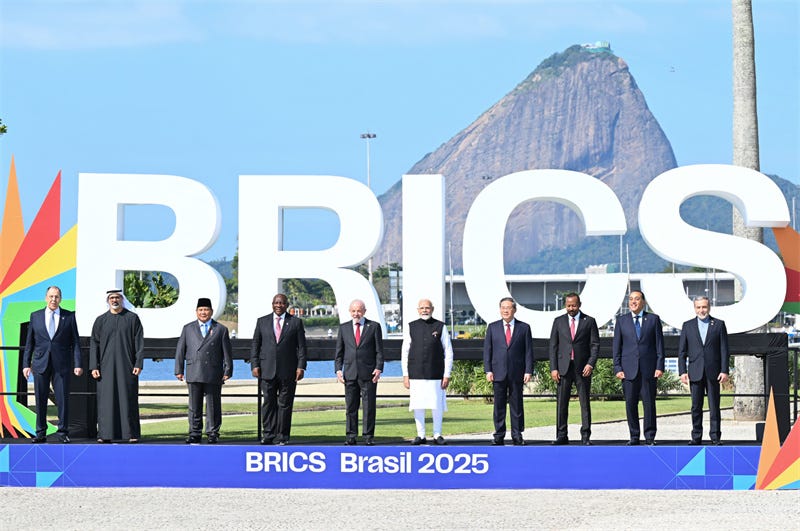
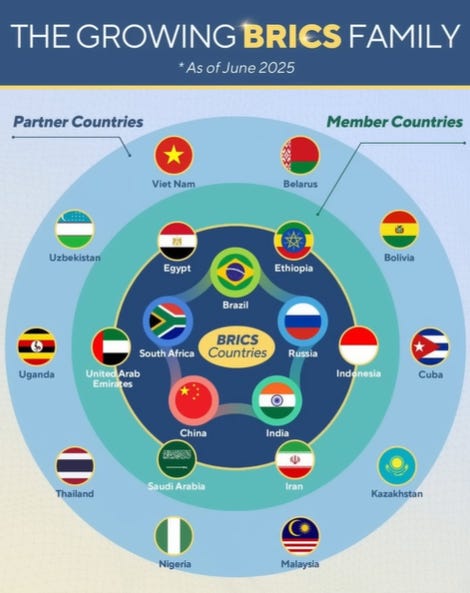

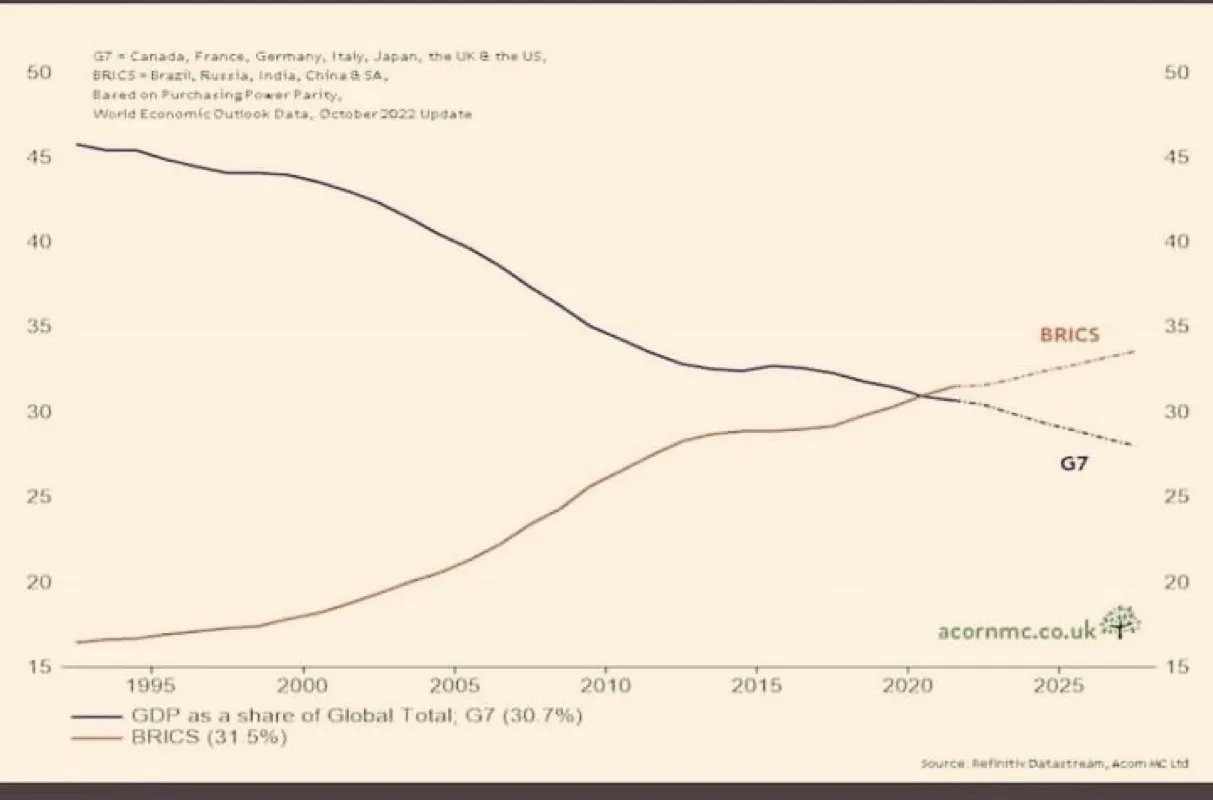
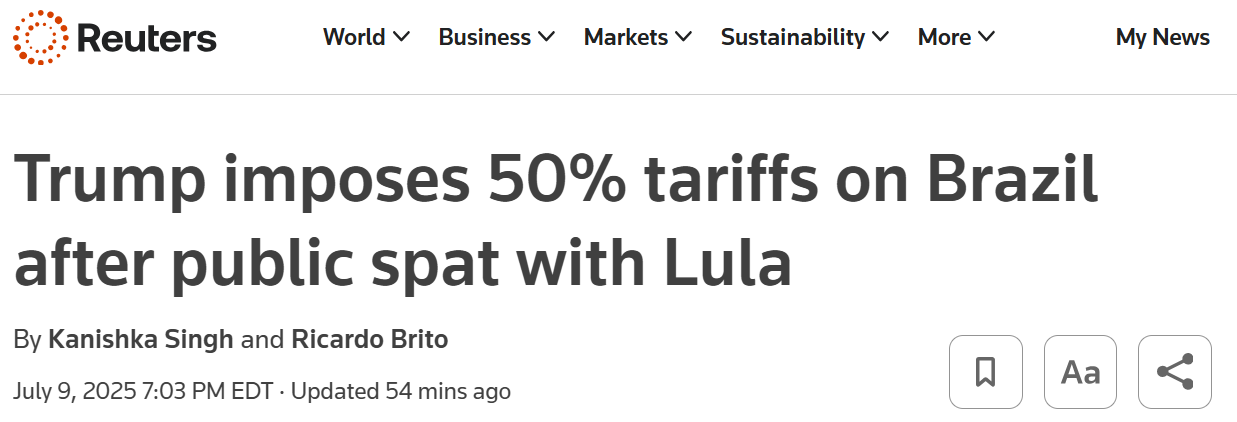

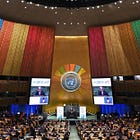


Good 'ol controlled opp on a global scale. If anyone didn't get it in late March 2020 that it was a 99% global coordinated scam, and they are all in on it, how will they get a clue now?
Though your urge for 'caution' is well placed, the westerling's addiction to 'team sports' cheerleading will override that rejoinder. easy prey to the fake mediaz dialectic of 'this/that' coke/pepsi, the dupes never fail to choose one or the other, rather than disconnect from the farce.
Now the real endgame is about to start. The Epstein debacle signals the pending fall of Humpty Trumpty into the same 'slough of despond' where he's already awaited by the rest of his Puppet Strongman' cronies.
Xi is being prepared for ouster. Putin is flailing and sinking faster than a N Korean warship; Starmer and Macron are heading for the exits along with the EU dominatrix Leyden, and the rest of the smarmy crew of WEF stooges aren't far behind. Communist/capitalist 'convergence' was their dream - now it's ready to happen.
After the exits of this rogue's gallery of shadow puppets, the moneymasters will at last disclose the new reality. Neo-feudal nightmares await the netizens who drank the foolaid of internet disinfo.. BLACKROCK/STATE STREET/VANGUARD literally own the planet.
And no- you will not be happy about it. Though you will indeed 'own nothing.'